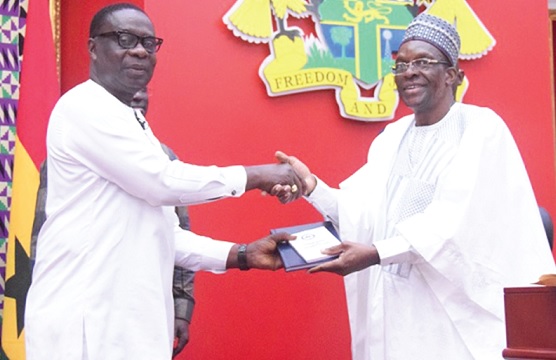
Ghana’s democracy: Calls for strong Parliament critical
The call by the Member of Parliament (MP) for Assin North, James Gyakye Quayson, on Parliament to be more assertive in its oversight, law-making and deliberative functions, after being sworn in on Tuesday, July 4, 2023, by the Speaker of Parliament, Alban Kingsford Sumana Bagbin, is worthy of consideration.
Advertisement
This is a call that many scholars in Ghana have been hammering over the years because of its seriousness to our maturing democracy.
The Inter-Parliamentary Union (IPU), established in 1889, described strong Parliaments as the cornerstone of democracy and essential for development.
This is the case because parliamentarians represent the people, pass laws, and hold governments to account; hence, when they fail in this direction, things cannot be normal in a democracy.
In countries where democracy has triumphed, Parliament had played a central role.
On the other hand, in countries where democracy has backslid, reversed, or fallen apart, Parliament had failed to play its role as a countervailing authority to the other arms of government.
Experts in comparative politics, including Yascha Mounk and Roberto Stefan Foa, have noted that weak Parliament can contribute to a situation where a sizeable minority of citizens lose their belief in democratic values, become attracted to authoritarian alternatives and starts voting for antisystem parties and candidates or movements that may eventually flout constitutive elements of liberal democracy.
In countries where this had happened, Vachudovadva argued that it began with the gradual elimination of independent institutions of the state, capturing of the economy, polarisation of society, and the subordination of the role of civil society.
With a weak Parliament, these signals become evident as governments attempt to diminish the power of countervailing institutions of state and independent voices.
Ghana may not be there yet but a journey of thousand miles, they say, begins with one step.
That is why calls for independent political institutions to be nurtured and protected are critical.
It is clear that Ghana is long past the era of open-ended coup d’état where the military intervenes.
We may also have gone past promissory coups, which entail the removal from office of elected officials as а defence of democratic legality.
Independent
political institutions
Additionally, Ghana’s legal framework is solid enough to prevent executive coups, which involve a stage-managed coup by the elected executives themselves through means such as the suspension of the constitution to stay longer in office.
In Africa, Frederic Chiluba tried it in Zambia, Robert Mugabe tried it in Zimbabwe, and Paul Biya tried it in Cameroun.
What we may be on guard against is what Nancy Bermeo calls executive aggrandizement.
This new trend of danger to democracies can occur when elected executives of the state deliberately weaken the means of holding them to checks and balances.
This they do gradually by undertaking a series of institutional changes that hampers the power of opposition forces.
Bermeo warns against this because it is subtle; yet, it can disassemble democratic institutions that pose a threat to the executives through legal channels such as referendums, new laws or the use of the law Courts or Parliament to amend existing laws, many of which may defy vertical and horizontal accountability.
The above may be deemed simple and far from us but it must serve as a warning signal if we tend to ignore them.
Advertisement
Will it surprise us that if there is a clear majority in Parliament, the potential to pass bad laws could be high and this may not be a respecter of political parties?
Concern
It is in the context of this that issues surrounding the criminal trial of the Assin North MP and related ones should be of concern.
The calls for the state to file a nolle prosequi, and the opposition to it, the decision by the Minority MPs to boycott sittings any day their colleague appears in court, the layman’s decoding of the actions by the judiciary in relation to politically sensitive cases, based on commentary by officers of the law court who are lawyers and communicators for political parties, among other things, must be of concern to us.
As the people’s representatives, one expects Parliament to play an independent and assertive role by seeking to support things that promote our democracy and not some of the things we usually see.
Advertisement
We must not forget that it takes Parliament to build and consolidate a democracy and that is why, at the demise of every democracy, Parliament is usually the first casualty.
As it is often said, Ghana is what we have and so if we allow it to fall, we fall together.
That is why all stakeholders, including the religious community, traditional authorities, civil society organisations, academia and the media, must keenly watch and make positive suggestions on the best ways to proceed with our democracy at this stage.
The writer is a lecturer at the Department of Political Science Education, University of Education, Winneba.
Advertisement




